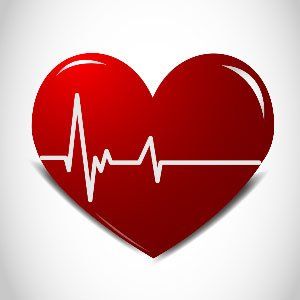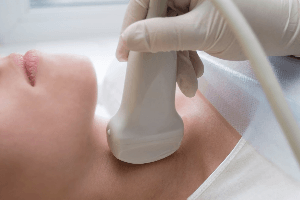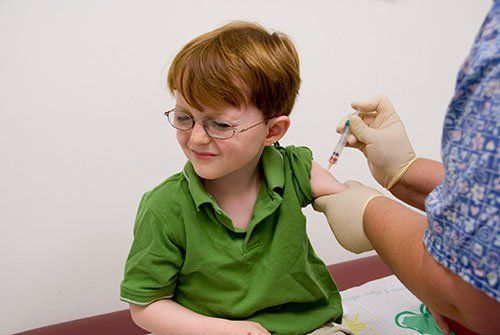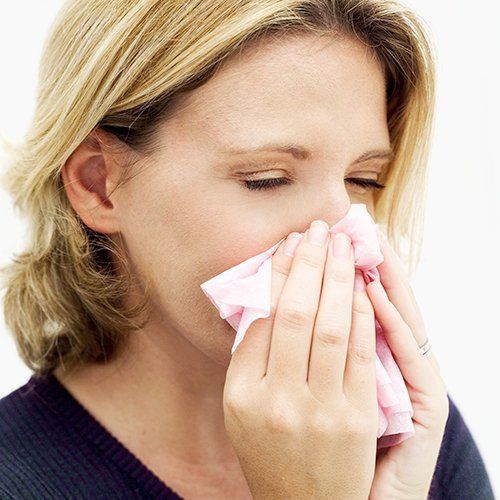What You Should Know About Food Allergies in Children
Admin • July 6, 2020

According to the Centers for Disease Control and Prevention (CDC), out of every hundred children, four
suffer from a food allergy. The statistics also indicate an increase in the commonality of food allergies in children throughout the years. For these reasons, you should understand what a food allergy is, why it occurs, and how to recognize the signs in your own child.
Common Food Allergy Information
Food allergies in children occur when your little one's body has an immune response to a certain food. For some children, even a slight amount of that food can trigger a reaction.
Even if your child didn't have a food allergy in the past, he or she may develop one over time. The reason a food allergy can occur randomly revolves around how a food allergy arises. It begins with your child's body mistaking a food as a harmful substance. Your child's body then releases immunoglobulin E (IgE) to counteract the food.
When your child consumes that food the next time, those IgE antibodies detect it and stimulate your kid's immune system to release histamine. The histamine, along with other chemicals your child's body releases, causes unpleasant allergy-related symptoms.
Common Food Allergy Triggers
Your child could develop an allergy to almost any food, but some food allergy triggers are more common than others. For instance, eight
consumable items account for 90 percent of food allergies, which are as follows:
- Eggs
- Peanuts
- Wheat
- Soy
- Fish
- Shellfish
- Milk
- Tree nuts (almonds, pine nuts, walnuts, and pecans)
While these are the most common food allergy triggers, carefully watch your child's reaction to other foods as well as it's possible other foods can cause a reaction.
Common Food Allergy Symptoms
Food allergy symptoms may vary from mild to severe. A mild allergic reaction to a food may cause your son or daughter's nose to run. He or she may also start to sneeze or cough. Hives or an eczema flare-up can occur as well. Digestive symptoms are possible too, such as an upset stomach, vomiting, diarrhea, or abdominal cramping. Other signs of a mild reaction include:
Itchy mouth
Funny taste in his or her mouth
Itchy or watery eyes
In more serious cases, your child may experience difficulty swallowing or breathing. His or her lips, tongue, or throat may swell. During a serious allergy reaction, your kid may suffer from confusion or lightheadedness. In addition, your child may slur his or her words or experience a change in his or her tone of voice.
Sometimes, your child may even pass out. Serious allergic reactions can also affect your child's heart rhythm and trigger chest pains.
Common Risk Factors
Certain children are at a greater risk for developing food allergies, such as those with a parent who suffers from allergies. A child's risk of a food allergy is greater if he or she has a parent who suffers from any type of allergy, including pollen. Your little one's risk is even higher if both you and his or her other parent have an allergy of any type.
If your child has another allergy, his or her risk of a food allergy is also higher. Certain allergies are known to co-occur. For instance, if a child has an allergy to grass, he or she may also have an allergy to cucumbers, tomatoes, or melons.
Additionally, children who have asthma are more likely to suffer from a food allergy.
Food allergies are a cause of concern for parents, especially if a child has a serious reaction. Knowledge about the subject can help you identify an allergy and know if your child is at a higher risk than others. Fortunately, once you understand the risks and symptoms, you and your child's doctor can manage the problem.
Schedule an appointment by calling Hampstead Medical Center PC, serving Hampstead, NC, and the nearby region, if you suspect your child may have a food allergy.

The IUD, or intrauterine device, is one of the most effective methods of birth control available. Unlike birth-control pills, you do not need to remember daily to administer medication, and the device itself lasts longer than shots and is easier to use than rings. Many women find all of these benefits desirable for a birth-control method. There are two general types of IUDs available to women. The first type is the copper IUD, and the other is hormonal. Which one is right for your personal birth-control needs?

Although the risk of cardiovascular disease increases as you get older, many people who die suddenly of a heart attack didn't previously know they had heart disease. That's why identifying risk factors for heart attack and stroke is so critical to cardiovascular health. Fortunately, with regular exams and the many types of screening tests available, doctors can detect early signs of heart disease.

Even if you've never had cause to doubt your thyroid function, if you're a female who has recently given birth, you may be at risk for thyroid issues. An estimated 12 percent of Americans deal with thyroid trouble at some point during their adult lives, and women are significantly more likely than men to develop a thyroid-related ailment. Unfortunately for new mothers, many of the most common signs of an underactive thyroid (like weight gain, mood swings, fatigue, and irritability) are also quite common for those dealing with a newborn's frequent night wakings and the realities of a post-partum body. Read on to learn more about some common (and not-so-common) signs that you could be dealing with a pregnancy-induced thyroid problem as well as some treatment options that can be safely administered or performed while you're breastfeeding. What Can Cause Thyroid Problems During Pregnancy? As with many other hormonal disorders, there are often more questions than answers when it comes to thyroid function. However, researchers have pinpointed a few factors and health conditions that can raise the risk of a woman’s developing a thyroid issue during or immediately after pregnancy. For example, while only around 7 percent of women are at a general risk of developing postpartum thyroiditis, this risk increases to 25 percent for women who have Type 1 diabetes or who dealt with elevated antithyroid antibodies during pregnancy. Women whose anti-peroxidase (anti-TPO) antibodies were elevated during pregnancy may have a 1 in 2 chance of developing postpartum thyroiditis, and those who have dealt with thyroid issues in the past (or during previous pregnancies) also deal with a significantly increased risk. In other cases, thyroid problems may have no cause that can easily be pinpointed; the rush of various hormones during pregnancy and the strain they can put on various systems, including the endocrine system, can create a sort of "perfect storm" in which thyroid problems may thrive. What Are Some Signs You're Dealing With Post-Pregnancy Thyroid Issues? Thyroid problems can take a number of forms, including hypothyroidism (an underactive thyroid), hyperthyroidism (an overactive thyroid), Graves' disease (an autoimmune condition that causes goiter), or Hashimoto's disease (an autoimmune condition in which the body's immune system attacks healthy thyroid cells, eventually stopping all thyroid function). The signs and symptoms for each thyroid disorder are unique and often at opposite sides of the spectrum. For example, hypothyroid patients often report being cold, having dry skin, sleeping more than normal, or gaining weight without trying while hyperthyroid patients sweat profusely, suffer from insomnia, and can lose a significant amount of weight in a brief period. Postpartum thyroiditis often manifests as either an underactive or overactive thyroid, which usually normalizes itself in a few months. Symptoms lasting longer than that or that appear to be getting worse may necessitate medical intervention. What Treatment Options for an Underactive Thyroid Are Best for New Mothers? Whether you suspect you have postpartum thyroiditis or have been formally diagnosed, you may be worried about how your potential treatment options could impact your ability to breastfeed and what effect (if any) they might have on your child. Fortunately, there are a number of effective options from which to choose. If your postpartum thyroiditis is deemed autoimmune in origin, there is some evidence that taking selenium supplements could help normalize your thyroid function without requiring you to take hormonal medication (which might pass into your milk supply). If your symptoms aren't severe and don't impact your daily life, you may instead opt for watchful waiting, maintaining contact with your doctor and reporting any worsening symptoms but avoiding medication or other treatment for the time being. However, if your doctor recommends supplemental thyroid hormone, this usually means some intervention is necessary to prevent permanent damage to your thyroid and the organs and systems that depend on a steady dose of hormones. Make an appointment with Hampstead Medical Center PC to get started taking care of your health.







